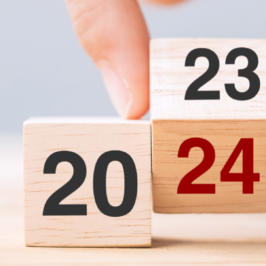The other day I was walking my daughter to gan (kindergarten) and as we were walking she turned to me and said, “Ima, how do you say boat in Hebrew?” I looked at her and confidently answered the first word that came to my mind. “S’fina,” I replied.
She looked at me with a scrunched up face which told me that she was confused.
“No, Ima, that’s not what my morah (teacher) said.”
Hmm. Was I wrong? I was pretty sure that I was right. But, still it was not what her morah said, so feeling like I myself was back in grade-school, I questioned myself and began to feel less confident in my knowledge of the Hebrew language.
Better look that word up as soon as I get back home.
Right now, my husband and I know a bit more Hebrew than our children do. But it seems as though things are on the verge of changing and I wonder how soon the time will come when we, the parents, start to feel like the immigrant parents whose children have to explain everything to them; translating the notes home from school, the bank statements and electric bills.
“We are the bubbys,” a friend recently said to me. “We are like the bubbys who emigrated from Europe to America. Those who did not speak a word of English, who sent their children to English speaking schools, and who had to have their children navigate the New World for them.”
Not me. I do NOT want to be a bubby.
I know what it feels like to be a child of immigrants. Even though my parents speak, read, and write English fluently, I still help my mother spell words…and she reads at least one English novel a week! I don’t get why she still does not know how to spell, but I am happy to help her.
I have a tremendous amount of respect for my parents. They landed in America with hardly any money; taught themselves English by reading newspapers and books; thrust themselves into English speaking jobs; and became citizens of the United States relatively quickly. They consider themselves Ameircan – well, Hungarian American, that is.
But what about me? Am I ready to consider myself Israeli?
Don’t I have that expectation for my own children?
A few months ago, we went to apply for a te’udat ma’avar, a temporary travel visa so that we would be able to fly out of the country. When the woman behind the counter handed me my te’uda, I looked it over to review it to make sure all the information on it was correct. As I read each line carefully I noticed that for citizenship it read: Israeli.
“Israeli?” I heard myself ask out loud.
The nice woman behind the counter answered, “Ken, yisraeli. Zehu.” (“Yes, Israeli. That’s it.)
That’s it?
When she said that I conjured up an image of a big falafel and every other stereotype associated with Israel.
Was that me now? Was I now a tall, dark woman, with long black flowy hair, tight-fitted jeans, high-heeled boots, long nails, and a cigarette in my mouth?
Hardly.
I looked over the teuda again; looking for some sort of sign of my Americanness.
It was not there. Not even on the back.
Zehu.
This is the new life we chose for oursleves. The new life we chose for our children.
I want to learn from my parents. I want to thrust myself into Israeli society. I want to speak with an Israeli accent. I want to understand my own bank statements and be able to read through school notes home in a breeze.
I want my children to respect me.
I want them to know that we are all in this together; that I am going through this transition with them; that I too am struggling.
How will I get there?
I will practice speaking Hebrew without being afraid of sounding stupid.
I will look up three new Hebrew words a day.
I will buy the Israeli newspaper and try reading through it once a week.
I want to stay relevant in my children’s lives.
I want to be going through this transition with them.
I will make an effort to really understand what my child’s school day is like.
I will make an effort to make friends with the Israeli parents of the children my children go to school with.
****
When I came home that day, I looked up the word for boat in the dictionary.
“Oniya.”
“Is that what your morah called it? Oniya?”
“Yeah, that’s it.”
S’fina wasn’t that far off. It means ship.
****
How about you?
Do you ever get the feeling like you cannot relate to what your own child is going through?
What do you do when your child gives you the feeling, or flat out tells you, that ‘you just don’t get it’?
What will you do to make sure that you stay relevant in your child’s life?







Jenny
Lol. It’s true – providing food and transportation helps. Telling them how much respect we have for them and everything they are going through is probably what is going to keep us relevant in their lives as they get older…
Gila
(My friend always says she feels like a Mexican immigrant.) I think the kids do see that we’re in this together – Ariella and I often look up words together when we don’t know what something means. But I have an incredible amount of respect for them, for everything they’ve experienced in the past year (and continue to experience.) I try to tell them as much as I can how proud we are of them! For now, I stay relevant in their lives because I provide food and transportation. Thank goodness for that!